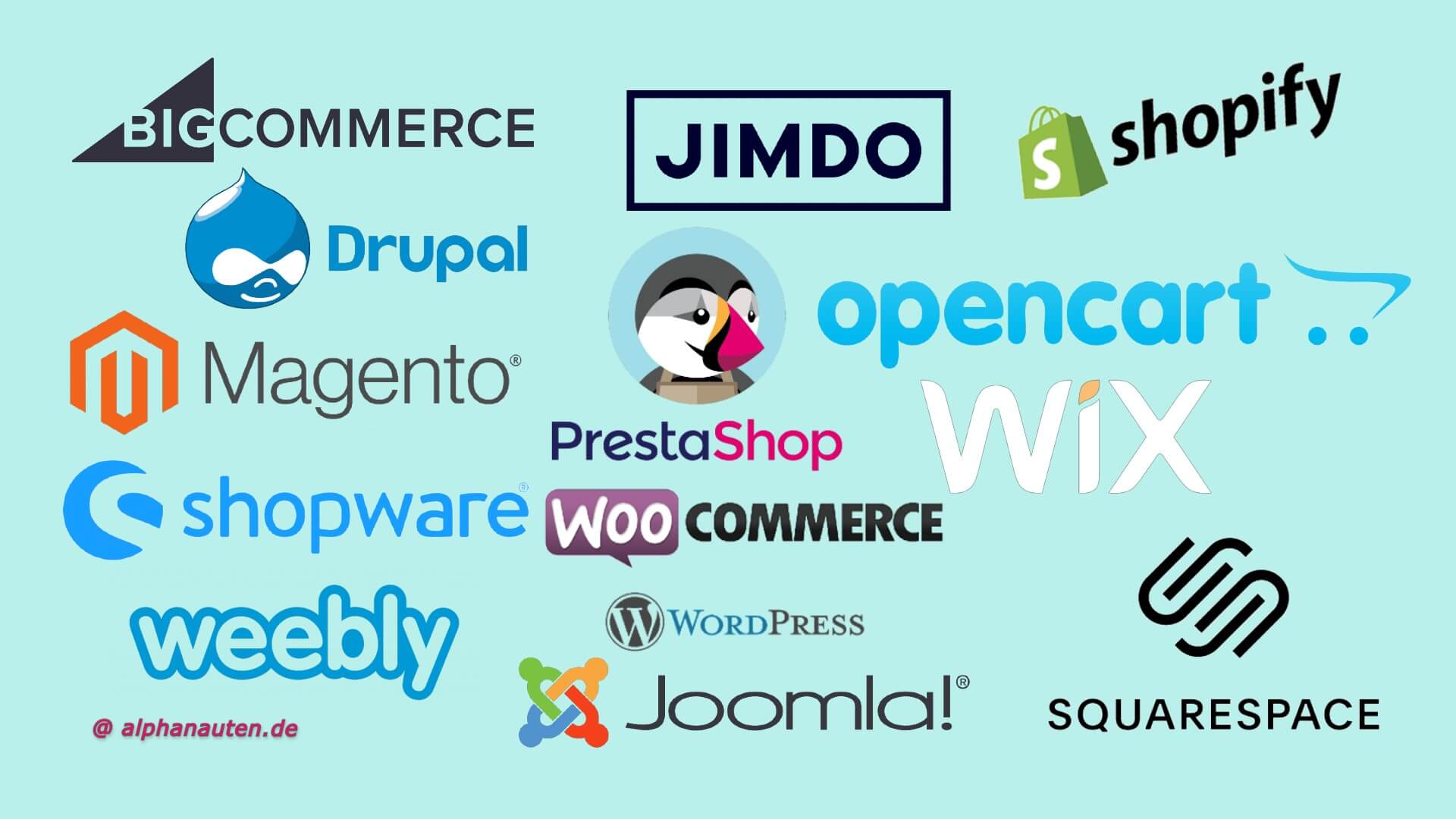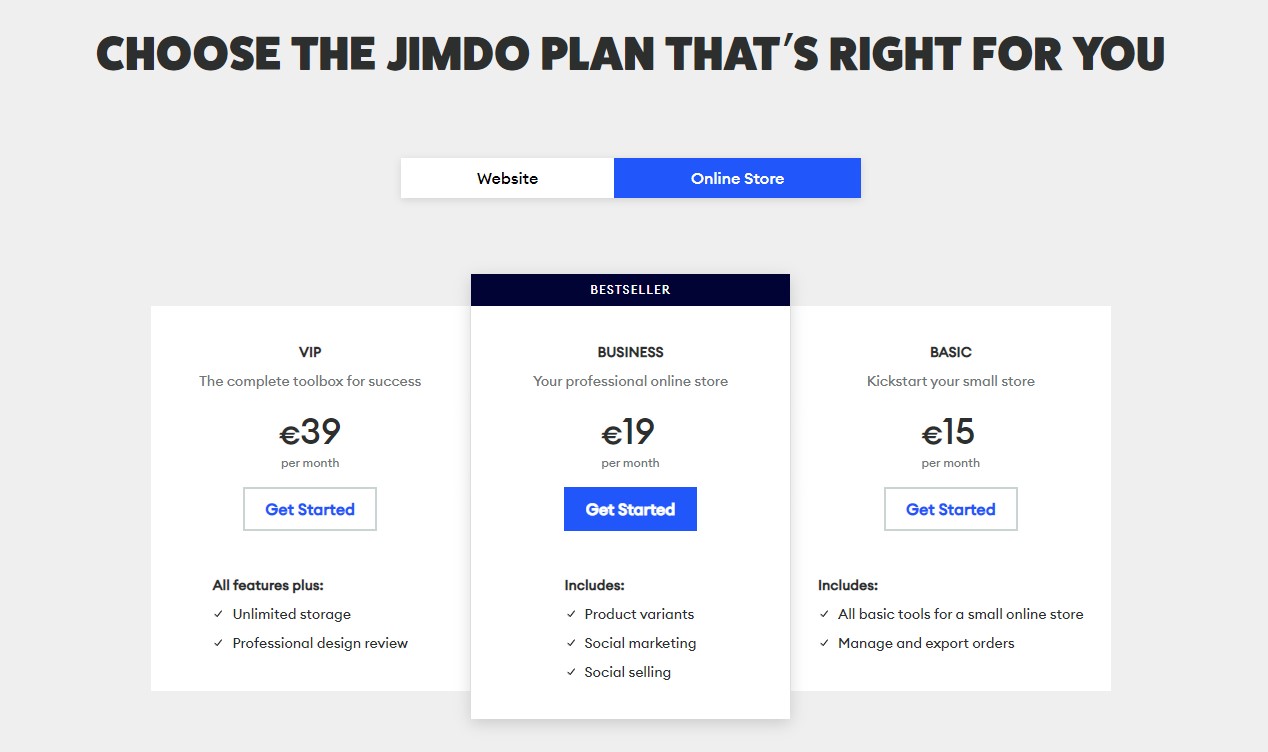Open source online store platforms are a great way to start an online business. They give you the freedom to customize and modify your store, but at the same time, they help you create a professional and well-functioning eCommerce website. You may wonder, what are the advantages of open-source online store platforms, how to create an online store or the list of the best open-source online store software? In this blog post, I will explain everything step by step.
Advantages of open-source online store
The main advantage of open source online store platforms is that they are free. This means that you don’t have to invest any money in order to get started with your eCommerce project. Another advantage of open-source online store platforms is the fact that they are customizable. You can make changes on your website without having any experience in programming or web design, which is perfect for beginners who want to start their own business but don’t know where to begin.
Is Open Source Ecommerce Really Free?
Please keep in mind that open source doesn’t mean free or paid. It is a misnomer to think that it is all open source and there are no costs. Open source can be free if you are willing to put in the time and effort to learn the code, create the product, and then maintain it over time as bugs arise. Open-source eCommerce platforms are free to use, but they may not be free of charge. They might have a cost associated with them in the form of time spent on development, hosting fees, or other fees. In one word, it just means that the code for the platform is open-source. You can modify your code as per your need.
Best open-source online store software list
There are tons of open-source online stores in the market. In another post, I have added the complete list of open-source online store software. But here I will give you a list of the best and most popular software list and their pros and cons respectively.
- BigCommerce
- Commercetools
- CoreCommerce
- Drupal Commerce (Drupal)
- IBM eCommerce solutions
- Jimdo
- Magento
- nopCommerce
- OpenCart
- PrestaShop
- ShopFactory
- Shopify
- Shopware
- Squarespace
- VirtueMart (Joomla)
- Weebly
- Wix
- WooCommerce (WordPress)
- Zen Cart

BigCommerce
BigCommerce is an open-source online shop platform. It is a hosted eCommerce solution. It allows for rapid deployment of websites and stores while saving time and money.
BigCommerce has helped hundreds of thousands of businesses to grow their sales by providing them with the best eCommerce platform to run their business online. These businesses range from small, local shops to large global brands like Coca-Cola and Volkswagen.
Pros:
– Provides a 15-day free plan with a wide range of marketing and sales tools
– Lots of features
– Easy to use and manage
Cons:
– The free plan is limited and not customizable
– Annual online sales have limits
– There isn’t much originality in many of the free themes
BigCommerce Pricing
BigCommerce has several pricing plans under their belt, which include Free for 15 days, Standard ($29.95), Plus ($79.95) and Pro ($299.95) per month. Enterprise pricing is also available for customers with online sales of over 10 million USD during the previous year.
Commercetools
Commercetools is one of the leading eCommerce software solutions for retailers, manufacturers, and wholesalers. It has been around since 1997 and is headquartered in Berlin. Their slogan is “We make it easy” which reflects their commitment to providing an easy-to-use, reliable solution for retailers. Commercetools has offices in Germany, Switzerland, France, the United Kingdom, the United States of America and Australia.
Pros:
– Provides a wide range of marketing and sales tools
– Easy to use and manage
– No need for coding skills
Cons:
– The free plan is limited and not customizable
– The free plan does not support social media or email marketing
Commercetools Pricing
Commercetools pricing starts at $19 per month for the Lite plan and goes up to $149 per month for the Pro plan. The pricing is based on the number of users you have and the number of active customers in your account.
CoreCommerce
CoreCommerce is a software company that specializes in eCommerce. It is an enterprise-grade platform that helps retailers to create, manage and grow their businesses. It was launched by the original founders of Magento in 2007. The company has offices in Silicon Valley, San Francisco, New York City and Dublin.
Pros:
– Low monthly cost, and is scalable
– Cloud-based means more speed
– Best for a small and medium-sized company
Cons:
– Doesn’t have robust customer support
– Limitation of integrating with other third-party applications
– Not many free themes
CoreCommerce Pricing
They have four types of pricing. ENTREPRENEUR plan is completely free, the BASIC plan is $29 /month, the PRO plan is $79 / month and the BUSINESS plan is $229 / month.
Drupal Commerce
Drupal Commerce is another popular open-source eCommerce platform. This software is being used world’s largest companies. Drupal is popular amongst small and large businesses. Drupal also has a very active community, which provides support for the project. This software comes with all the features you would expect from an online store, such as product catalogs, orders, variations, payment methods and more.
IBM eCommerce solutions
IBM’s eCommerce solutions are a suite of products that can help companies with everything from customer acquisition to customer retention. With the IBM Commerce Platform, companies can create a personalized shopping experience for their customers.
IBM’s eCommerce solutions include a suite of products that can help companies with everything from customer acquisition to customer retention. With their platform, companies can create a personalized shopping experience for their customers.

Jimdo
When it comes to a free website builder then you have to think the name Jimdo. With Jimdo’s tools, you need to create your own professional website or eCommerce store. It’s a web-based service that provides users with all the tools needed to create their own professional website. Jimdo offers an easy-to-use interface and has many features that are not available in other free website builders, such as unlimited pages, email hosting, and domain name registration.
The company is founded in 2007 by Christian Schmitz and Matthias Hübner in Hamburg, Germany.
Magento
Magento is also another very popular open-source eCommerce software for online stores. It is a popular platform for enterprise-level businesses. It is a powerful and scalable e-commerce solution with a rich set of features to help merchants sell their products and services in the global marketplace.
nopCommerce
nopCommerce is an eCommerce platform that is open source and free to use. More than 400,000 online stores are using nopCommerce software. They have 45 languages. nopCommerce founded in 2008. As a fork of osCommerce, with the goal of improving the user interface and adding features like multi-language capabilities.
OpenCart
OpenCart is an open-source eCommerce solution that’s been available since 2008. It provides an easy way to create your very own online store. It is also one of the popular online store software you can choose from.
Pros:
– A user-friendly interface
– Easy installation
– Lots of templates to choose from
– Secure checkout process
Cons:
– OpenCart can be difficult to import your inventory list
– It offers a slow checkout experience in some cases
– The system itself might be too lightweight for some users
PrestaShop
PrestaShop is a free and open-source e-commerce platform that enables you to create an online store without any coding. It’s the most popular e-commerce software in the world, with over 1 million active online stores. PrestaShop includes all of the features necessary for running an online store: catalog management, product management, order management, customer management, shipping and payment options.
ShopFactory
ShopFactory is an open-source online store that allows users to create their own store without any coding. It is using Laravel framework and uses a MySQL database to store data. This application is easy to use and user-friendly. Use can customize it in many ways. It has various templates available for the user to choose from. You can also create your own template too.

Shopify
One of the most popular eCommerce platforms is Shopify. It provides a wide range of services for online stores. It offers everything from hosting and domain names, to search engine optimization and social media marketing. Shopify first launched in 2004 by Tobias Lütke and Scott Lake.
Shopify was originally based in Ottawa in Canada. But later they moved to the current headquarters in Montreal. In November 2018, Shopify announced its acquisition of Kit CRM for $1 billion CAD (roughly $800 million USD).
Shopware
Shopware is an open-source online store software with a focus on eCommerce. And it is designed not only for small and medium-sized businesses but also can be used by large companies. Shopware is built with open source technologies like PHP, Bootstrap, MySQL, and Apache. This means that it can be customized to suit individual business needs. Moreove, Shopware also provides the option to use either a free or paid license for personal use or commercial purposes respectively.
alphanuten is a Germany-based software company that has expertise in Shopware shop making. If you are thinking to make a professional online shop for your business then don’t hesitate to contact the alphanauten team.

Squarespace
Squarespace is also a very popular open-source online shop-making software. It is one of the easiest website builders that let you create your own website in minutes, without any knowledge of coding. Squarespace was founded in 2004. It provides a platform for building and maintaining websites. They provide a variety of templates and themes to choose from, which makes it easy for anyone to build their own website.
Joomla
Jommla is one of the oldest content management systems (CMS) in the Internet world. It is a free and open-source content management system (CMS) for building websites and powerful online applications. Similarly they have also extensions that can help you to make your own online shop. Joomla CMS was founded in 2005. This platform has more than 3 million users. It has a lot of features that are not available in other web stores.
Wix
Wix is another most popular web-based platform. It allows users to create and manage their own online shop or any kind of website. It was founded in 2006 by David Wix and Avishai Abrahami. But the company has been gaining popularity in recent years, with its user base increasing by more than 50% in 2017. Users can use Wix to create a website, blog, online store, mobile app, and social media page.
Wix provides customers with a free website builder which they can use to create their own website. They also offer premium services for those who want more features, such as the ability to sell products online or have unlimited storage space.

WooCommerce by WordPress
You will not find a person who is using or making websites but doesn’t know the name of WordPress. It is the most used CMS in the world. With WP’s plugin called WooCommerce you can make your online store. It is an open-source web-store-making plugin that is built and managed by WordPress. It can be used to build an online store without any coding knowledge. WooCommerce is free, you just need to just download and install it on your website. You can start selling products in minutes with no upfront costs or monthly fees.
Zen Cart
Zen Cart is a free and open-source web store software package. It has been downloaded over 10 million times, making it one of the most popular Open Source projects on SourceForge.net. Zen Cart is developed by Andrew Molloy in 1999. It is released as open-source software in 2000.
Final Words
Open-source software has been around for quite some time now. To build an online shop by using open-source software you can take this post as a reference. It could be a complete guideline for you. In maximum cases, you can find an open-source online shop software from our list above to make your shop.
In fact, it’s estimated that about 80% of software developers use open-source software in their work. This article showed you why you should build your next online store with open-source software and how to choose the best online shop software. If you like this post then please don’t forget to share it.

















